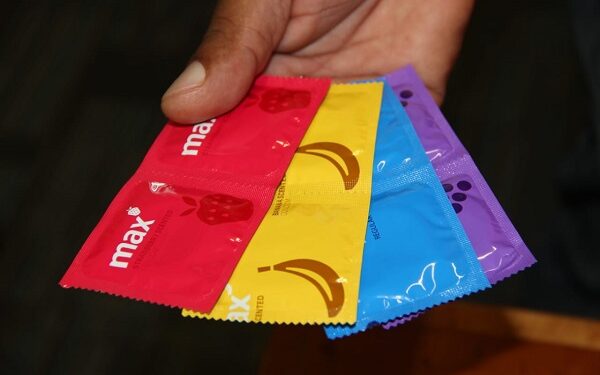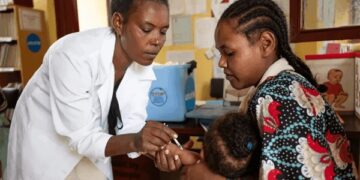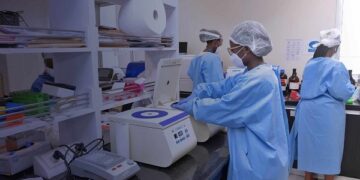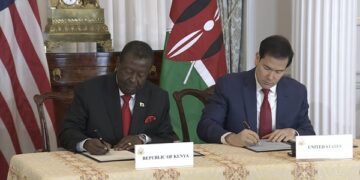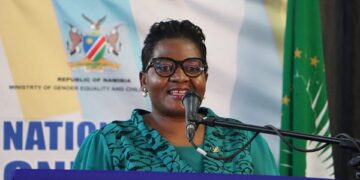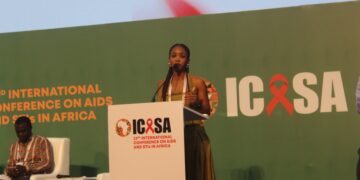ACCRA, Oct 28 (The African Portal) –The Ghana AIDS Commission (GAC) has expressed concern over a sharp decline in condom use among young people, warning that complacency about HIV and AIDS could undermine years of progress in the country’s fight against the virus.
Isaiah Doe Kwao, Director of Research, Monitoring and Evaluation at the Commission, said that although condoms remain easily accessible, many young people are opting for unprotected sex because they no longer fear HIV infections.
“Even though we have condoms in this country, it appears the youth of today are not using them as we would want,” he said at the 14th National Partnership Forum on HIV and AIDS in Accra on Wednesday.
Kwao said some young people preferred “going raw” and believed HIV was no longer deadly because fewer people were visibly dying from the disease.
“Some say they prefer the natural feel. Others think HIV is no longer deadly because they no longer see people dying like before, so the fear factor is gone,” he noted.
He described such attitudes as dangerous, stressing that condoms remain one of the most effective tools for preventing HIV, sexually transmitted infections (STIs), and unintended pregnancies.
“As much as possible, we continue to encourage them to reduce risky behaviours. Condom use is still key in preventing HIV and other infections. We advise them to either abstain, remain faithful to one partner, or use condoms consistently and correctly,” he said.
Kwao urged young people to take their health seriously, saying their wellbeing was crucial to Ghana’s future.
“The youth are the future leaders of this country. We want them to stay safe, grow into healthy adults, and contribute meaningfully to national development,” he added.
He said the Commission was developing a strategic plan for 2026–2030 to help Ghana meet the global 95-95-95 HIV targets — ensuring that all people living with HIV know their status, receive treatment, and achieve viral suppression.
Kwao also cited inadequate funding as a major challenge following the withdrawal or reduction of support from key donors, including USAID and the Global Fund.
“It is incumbent on the government of Ghana to fill in the gap so that we can implement the interventions we’ve laid out,” he said.
This story was written with additional files from GNA
